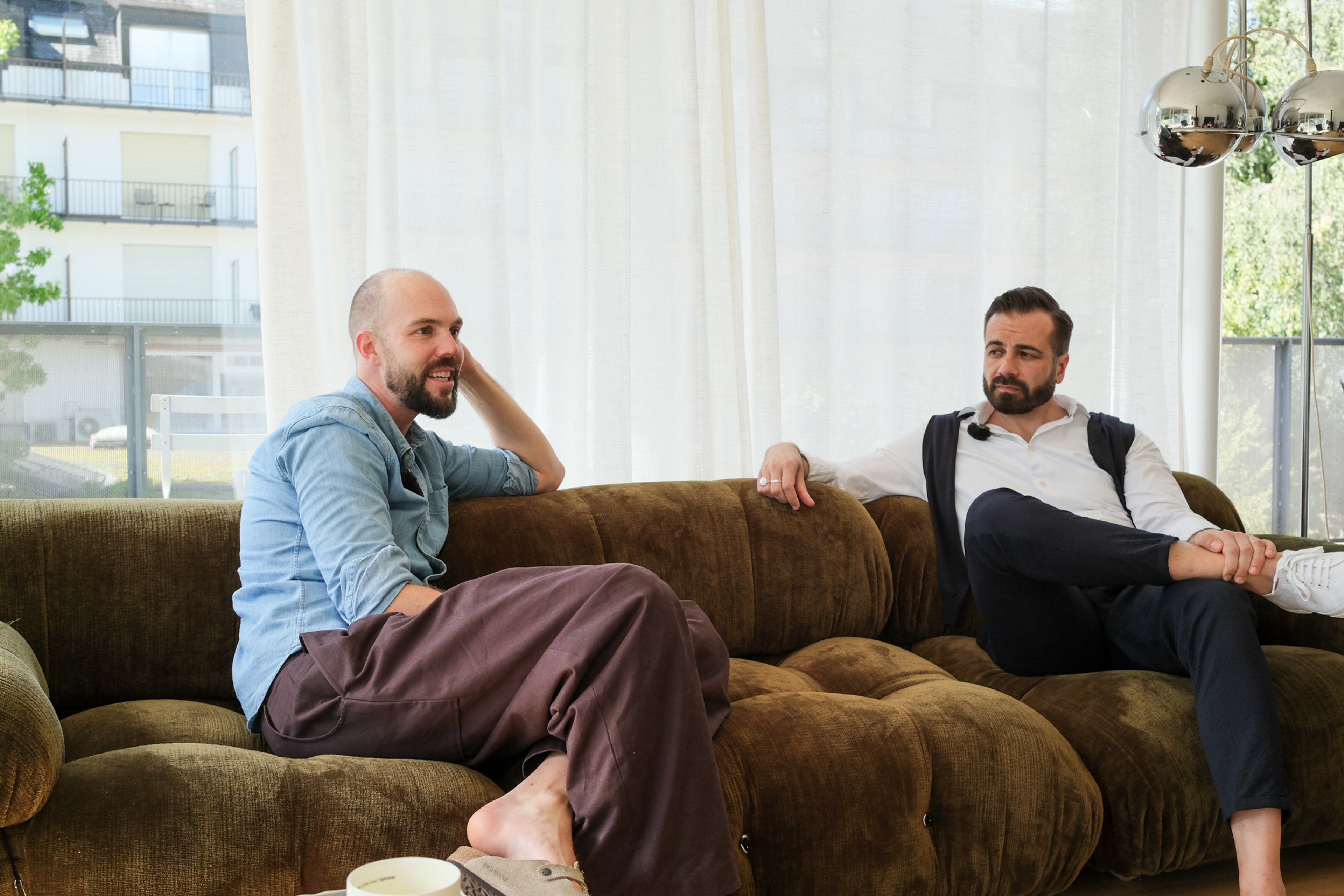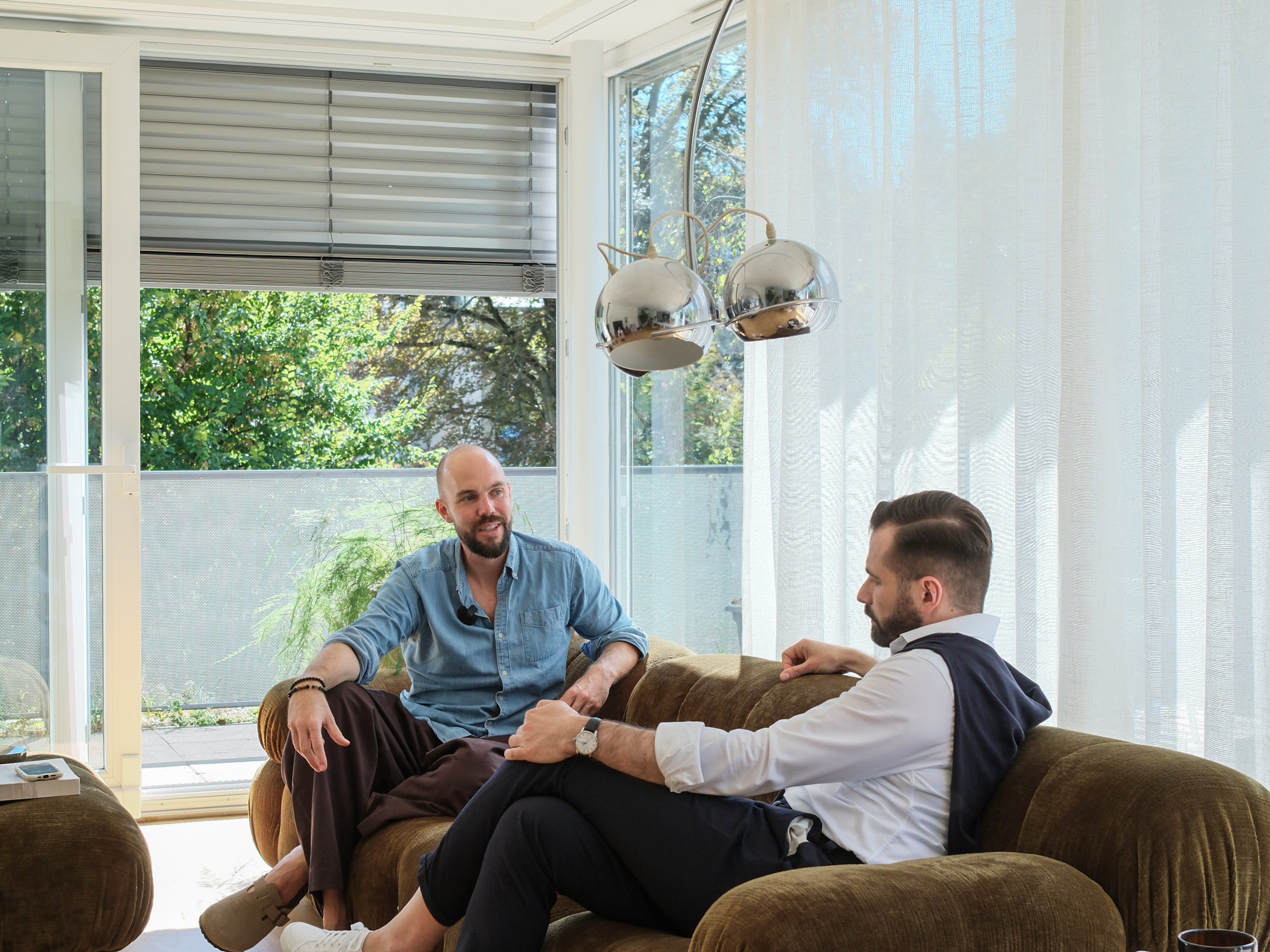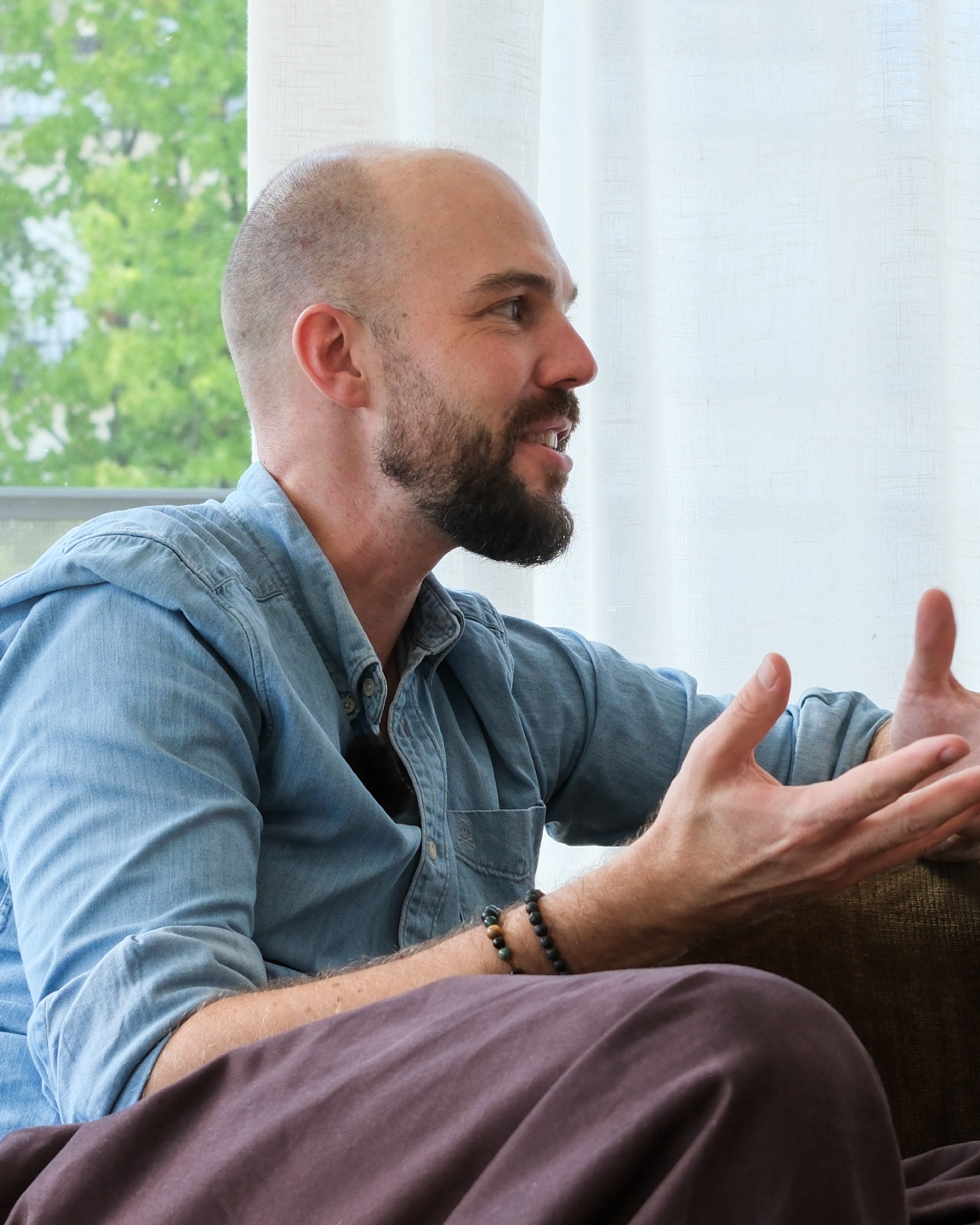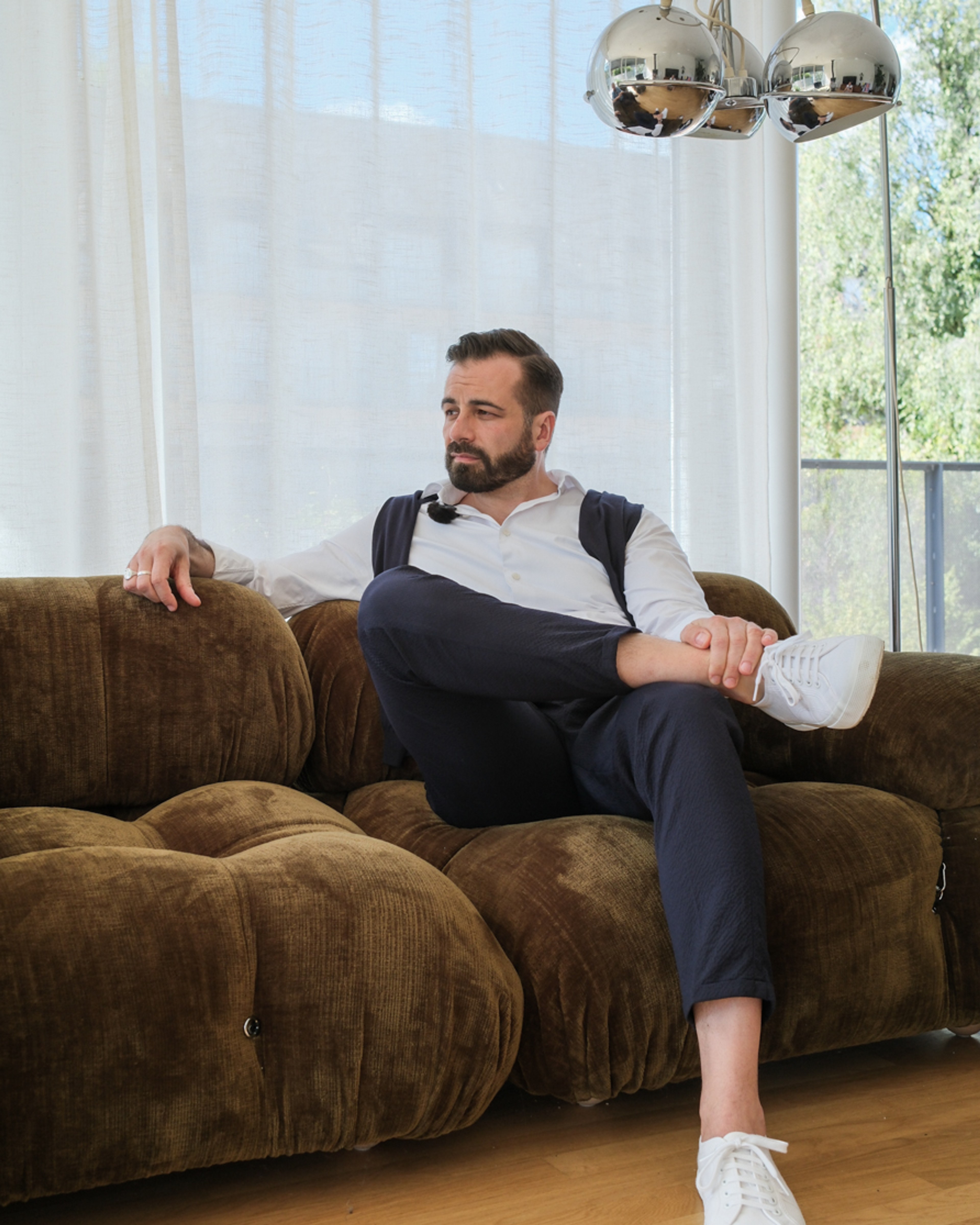
In conversation with Fabian Messer & Fabio Duma: exploring resonance
“Why hadn’t anyone approached the industry from this angle before?” FERUS’ Fabian Messer sat down with Fabio Duma - a university lecturer, coach and consultant - to discuss their shared fascination of resonance.
- 17.10.25
- Mindfulness
- Author Kiki Müller
FD
In the many years I have been exploring the topic of luxury, I have always sought new perspectives on the industry — one that, in my view, has become too material and too mass-orientated. During my research I came across Rosa’s theory of resonance. I found it intriguing that no one had approached the luxury industry from this angle before.
FM
What is it about the luxury industry, in particular, that fascinates you so much?
FD
The commercial side of luxury never really interested me. What does interest me, however, is what luxury actually is: people who are exceptionally good at something, who have perfected their craft, and how others respond to that level of mastery.
FM
It is this human touch that has also shaped my vision for Ferus. We build hotel brands which, on the surface, might seem superficial. But the meaning comes from working with the people behind it, bringing a community together and giving them visibility and a voice. The hotel as a construct offers so many possibilities to do that.
FD
A hotel provides a stage for creating a holistic experience. Many of the tasks and relationships within it are experience orientated, which opens up enormous potential for resonance.

FM
For me, resonance means connecting emotionally, and perhaps even spiritually, with other people — creating something greater than the sum of its parts. I believe that, at its core, this is what people are searching for: to learn from one another, to grow through one another.
FD
When I work with people — whether students or coaching clients — my role is to provide a space where they can reflect on their own thoughts, emotions, and behaviours. Today, however, so many encounters are dominated by financial considerations. Genuine interest in, and openness toward, the other person is all too often missing.
FM
To create a space of resonance, people need to feel understood. When we work with our members — the hotels — it is important to me that as many employees as possible are included in the process. Of course, we can’t adopt every idea, but simply giving people the opportunity to contribute fosters motivation and a sense of recognition. No one can do everything alone. What truly fulfils me is seeing a project come to life through the combined efforts of many — a creation that carries the imprint of everyone involved. Yet I have noticed that today, a project’s success is often measured by its spectacle, rather than the shared creativity that, to me, defines its true value.
FD
There are times of tradition and times of escalation — as my partner’s father once put it. We are clearly living in an era of escalation: everything feels a bit excessive, and everyone seems desperate to outdo one another. Actions are no longer guided by personal motivation or authentic drive, and with people responding more to external demands than to their own initiative, true resonance is difficult to achieve.
FM
But are today’s consumers even seeking that anymore — the experience of resonance? We are witnessing an increasing democratisation of luxury: the desire to possess prestigious items is ubiquitous, yet the thrill fades once they no longer feel exceptional.
FD
As volume increases, luxury goods lose their value — only to be replaced by newer, more exclusive items that restore the lost sense of prestige and status. That is how our economy works. I have always wanted to create something — but what is truly needed anymore? So instead, I chose to offer my time, my thoughts, my undivided attention in my role as a coach. For many, that in itself is a luxury: to have someone devote an hour or two solely to them, who asks rather than tells, and truly listens. Humans will always have material needs, and products can indeed generate resonance. But the discussion of what luxury actually is also has a philosophical dimension: fulfilment, purpose, happiness. Unlike in the past, people no longer seek these through their work. Yet that is precisely what we need: people who work well for no other reason than the work itself, returning to a place where the joy of working matters more than money or prestige.
FM
Returning to this mindset requires change. Yet humans are inherently resistant, clinging to the familiar rather than embracing transformation. How can we remove the resistance that stands in the way of resonance?


FD
A human makes approximately 20,000 decisions each day, most of them unconsciously. That is precisely why so many systems are built around homeostasis: regardless of external circumstances, the body strives to maintain largely constant conditions. Unless we are prompted to question our habits and routines, we rarely examine them. True transformation, then, emerges only when we encounter someone who can inspire us to rethink, to reprogram, and to explore new possibilities. It is a process that requires mutual listening, support, and, above all, community.
FM
The phrase, that’s how we have always done it, has long annoyed me — and I still hear it constantly. Change is always possible. The outcome may be uncertain, but that is no reason not to try. Perhaps the tried-and-true path is indeed the best, yet unless it is questioned, it should never be treated as a given.
FD
The luxury industry has also changed on the customer side. Today, those who enter a grand hotel or designer boutique do not, by definition, necessarily belong to its traditional clientele. This demands staff capable of engaging with individuals from varied backgrounds — and, ideally, resonating with them. In my university lectures or trainings for high-end retail staff, I try to teach participants to be fully present and curious when engaging with others, to observe carefully, with curiosity, and without judgement: who stands before them, what they wear, how they behave. A successful interaction requires showing genuine interest and asking the right questions — not from a rehearsed script, but in real response to the individual in front of them.
FM
Working in the hospitality and service industry requires a certain humility: finding fulfilment in attending to the needs and wishes of others. Today, that doesn’t seem to hold much appeal.
FD
There is a widespread lack of appreciation for so-called care work. Service, in its essence, is no longer celebrated. Efficiency dominates — mass processing has taken over. And yet, there are those who perform their work efficiently, yet distinguish themselves through genuine dedication and visible joy. Their work stands out from the rest. But surpassing others requires first immersing oneself in the fundamentals, learning how it all works from the ground up. That, too, demands humility, especially at the start.
FM
Learn the rules before you break them.
FD
The years of learning are not the years of mastery — so I was taught back in university when I did my PhD. Critical thinking is honed over time, requiring experience to draw upon, including the lessons we gain from working with others and from recognising our own limitations. In this sense, your earlier point rings true: no one can do everything. As individuals, we may possess a sense or talent for certain skills, yet we are all part of a larger system, dependent on others.
FM
Among young people, there often seems to be a sense that this foundational work is no longer needed.
FD
Ultimately, it all comes down to the ability to step beyond one’s own perspective. To achieve this, it is essential to engage with people from different backgrounds, with diverse experiences, and perhaps even differing convictions. It is through such a community that something new — something better — can emerge.
FM
The ability to read others, to truly understand them, and to give voice to what they cannot articulate themselves — it is a gift worth cultivating. Surrounding yourself with people who not only understand your vision but share it. Because, in the end, it all begins — and ends — with resonance.
THE EXCHANGE
Get the latest member news, interviews, drops and digests in your inbox.